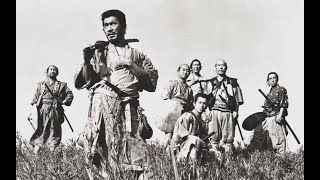Oct 17 (News On Japan) –
A long-lost recording of acclaimed film director Kihachi Okamoto, known for his lifelong commitment to anti-war cinema, has been discovered, shedding new light on the convictions behind his influential body of work. The tape, found in January in a storage room at BSS San’in Broadcasting, captures Okamoto speaking on radio in 1968 and reveals deeply personal reflections shaped by his wartime experiences.
[embedded content]
Okamoto, born in Yonago, Tottori Prefecture, in 1924, joined Toho Studios with the dream of becoming a filmmaker, only to be drafted the following year. “I was delayed about six months because I was selected as a special officer candidate, so I was lucky. Nearly half of those who entered service normally didn’t make it back,” he recalled in the recording. His direct exposure to the horrors of war would become the foundation of his filmmaking philosophy.
Known as a “maverick” of Japanese cinema, Okamoto infused entertainment with harsh portrayals of war’s brutality, producing a string of acclaimed works that challenged audiences to confront its realities. Among them was the 1967 classic “Japan’s Longest Day,” which depicts the final hours before Japan’s surrender. “When I saw what happened, I felt it was my job to make war films so that such experiences would never happen again,” he said.
The rediscovered recording also captures Okamoto’s frustration at the weight of historical truth. “I felt the gravity of the facts. There was no room for me as an artist to slip in — and that was frustrating,” he admitted, reflecting on the creative limitations imposed by historical responsibility.
For his daughter, Mami Okamoto, returning to her father’s hometown for the first time in two years was a deeply emotional experience. “He wasn’t like an ordinary father, but he did his best,” she said, visiting his grave where the director, who died in 2005, now rests.
Eighty years after the end of the war, Okamoto’s voice remains strikingly relevant. “Even if we talk about peace, blood is still being shed and gunfire is still heard somewhere in the world. I feel a great sense of crisis,” he warned in the 1968 interview. Though he can no longer speak to the present, the unwavering anti-war message embedded in his films continues to challenge and inspire new generations.
Source: TBS
[embedded content]
Disclaimer : This story is auto aggregated by a computer programme and has not been created or edited by DOWNTHENEWS. Publisher: newsonjapan.com








